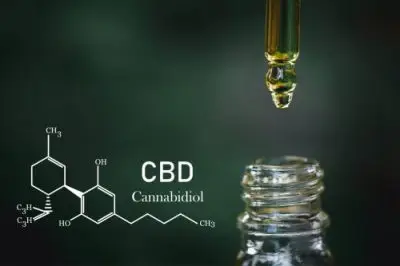Many patients wish to buy cannabidiol (CBD) oil due to its potential for aiding in their medical treatment plans. There are a range of different CBD oil products that a doctor can prescribe to a patient. The specifics of their chemical makeups are unique, making them suited for particular patients and situations. Due to most CBD oil products being classified as unapproved therapeutic goods by the Therapeutic Goods Administration (TGA), doctors must apply for approval when prescribing them.

Can you buy CBD oil in Australia?
You can buy CBD oil in Australia, as long as it has been prescribed to you. Once you have a prescription from your doctor, you can buy the specific cannabis oil product prescribed from any pharmacy. To do so, you must bring your prescription. Once you have received your cannabis oil product, make sure you keep it stored within its original container. Additionally, make sure the container keeps the original pharmacy labelling.
Why choose CBD oil?
CBD oil is a popular choice due to its lack of undesirable side-effects. Tetrahydrocannabinol (THC) oil is another popular variant of cannabis oil. THC has the potential to cause euphoric effects and cognitive impairment. This is due to how THC molecules bind to the CB1 receptors in the body’s endocannabinoid system. These are connected to the central nervous system, resulting in potentially mind-altering effects. As a result, THC-based treatments are incompatible with activities such as driving and operating heavy machinery. CBD oil does not have these effects, making it a more convenient option for many.
How to buy CBD oil in Australia
To buy CBD oil in Australia, you must get a prescription from your doctor. After a consultation and discussion, your doctor may decide that medical cannabis treatment could benefit you. If so, they can prescribe you medical cannabis products like CBD oil using the Special Access Scheme (SAS) or the Authorised Prescriber (AP) pathway. These allow medical professionals to prescribe unregistered therapeutic goods such as CBD oil to patients.
Can CBD oil be bought over the counter in Australia?
There are no CBD oil products currently available over the counter in Australia. This is because no CBD products have yet met the relevant criteria for TGA approval. While none are currently available, there are positive signs for the future. The TGA down-scheduled low-dose CBD in February 2021, so some CBD-based products could become available without prescription in the near future. However for the time being, patients will still require a script from their doctor if they wish to acquire CBD oil products.
Why the long wait?
CBD oil products, and all medical cannabis products, must go through rigorous testing and clinical research in order to meet the relevant standards and registration process. This ensures that the products are safe for consumption and provide a therapeutic effect. As more research is done and more products enter the market, this process will likely take less time.
There are over 5500 doctors nationally prescribing medicinal cannabis and an additional 2500+ are Authorised Prescribers (AP), meaning they can write a medicinal cannabis script for patients immediately, without waiting for TGA approval.
CBD terminology
Cannabinoids (e.g. THC and CBD) are created mostly by the flowers, and also by the leaves. There are trace amounts in the stalks. The plant cannabis sativa contains more than 400 natural chemical compounds; at least 114 of these are classed as cannabinoids.
Cannabinoids are a type of chemical that interacts with the endocannabinoid system in the human body to produce a wide range of effects.
The Endocannabinoid System: The endocannabinoid system is a signalling network that controls various functions in the human body. The messaging molecules in this system are called endocannabinoids.
Endocannabinoids are very similar to the cannabinoids in Cannabis; endocannabinoids are manufactured internally by the body and phytocannabinoids are manufactured by the plant. Both endocannabinoids and phytocannabinoids bind to receptors within the body.
Cannabidiol (CBD): is a cannabinoid that is not intoxicating and will not get you ‘high’.
Tetrahydrocannabinol (THC): another cannabinoid that in addition to medical benefits, can have psychoactive effects at a sufficient dose. This means that for some patients they can have feelings of euphoria or they feel ‘high’.
How to access CBD oil in Australia
Both CBD and THC cannabinoids are listed on the Commonwealth Poisons Standard, therefore they cannot be legally sold directly to the general public. Only a pharmacy can dispense CBD products to patients in Australia with a valid prescription.
Products that can be sold directly to patients online or in-store are those with less than 0.01% of any cannabinoids (likely to be hemp seed oil).
When finally available, over the counter (schedule 3) CBD products will be limited to a maximum recommended daily dose of 150mg in packs containing 30 days or less supply, and where CBD comprises at least 98% of the total cannabinoid content in the preparation.

Understanding the label on your prescribed CBD oil product
Prescribed CBD oil products have prescription labelling, which provides a lot of helpful information. The labelling requirements for any medical cannabis products are outlined by the Therapeutic Goods Order No. 93 (TGO 93). This standard comes from the TGA and ensures the product has met the necessary safety and quality standards to be sold within Australia.
There are important pieces of information that your label should contain including the milligrams of active ingredients, whether the product is full-spectrum, and whether it’s Australian-made. If your label doesn’t seem to have sufficient information, it could potentially be an illegal product. In such cases, it is good to consult a doctor or pharmacist for further clarification.
What is the difference between CBD oil and hemp oil?
The difference between CBD oil and hemp oil is which part of the cannabis plant they are made from. The hemp plant is technically within the cannabis family. It usually refers to cannabis plants with low concentrations of cannabinoids and phytocompounds. CBD oil is derived from both hemp plants and phytocompound-rich cannabis plants. It utilises different parts of the plant including the leaves, stalks and flowers for extraction. Hemp oil, on the other hand, is made using the seeds of the hemp plant. While hemp oil is rich in nutrients, it doesn’t have the same medicinal properties as CBD oil due to lacking cannabinoids. This means that it doesn’t interact with the body’s endocannabinoid system the way CBD oil does. However, hemp oil can still act as a carrier oil for CBD extract that comes from a cannabis plant.
Because of the differences between their chemical properties, CBD oil and hemp oil are regulated very differently. Hemp oil is used to make widely-available products, such as soaps, lotions and protein powders. However, due to CBD’s stronger effects and scheduling, it may only be attained through a doctor’s prescription.
Contact Us For Free Assistance
"*" indicates required fields
Additional CBD Information
Learn about CBD and how you can utilise it as an Australian resident.
CBD in AustraliaLearn about what effects to expect when taking CBD products.
The Effects of CBDWe unpack the differences between CBD and THC medical cannabis products. Find out which is best suited to you.
CBD vs THCCBD medical cannabis can be delivered in a number of ways. We break down the range of product types for CBD cannabis.
Different CBD Products in AustraliaCBD medical cannabis can be delivered in a number of ways. We break down the range of product types for CBD cannabis.
CBD LegalityLearn about the differences between these three types of CBD products and which one is best for you.
Whole Plant vs. Broad Spectrum vs. Isolate CBDExplore the various CBD oil types, their differences, and the importance of proper dosing. Learn how these factors can affect your CBD experience.
CBD Oil Types and DosingPlease Note:
- All content on the Little Green Pharma website and associated portals, webpages and links, is for informational purposes only and has been prepared based on Little Green Pharma’s understanding of the legislation, guidelines and cannabis industry experience in Australia. However, these circumstances may change and patients are recommended to check this site regularly for updates.
- The content on the Little Green Pharma website is not intended to be a substitute for (a) professional medical diagnosis, treatment or advice, including in relation to eligibility requirements; (b) professional legal advice or guidance on legal or regulatory issues; or (c) information from manufacturers or suppliers in relation to different products or specific product information.
- We recommend you always seek the advice of your physician or qualified health provider and other relevant professionals, in relation to such matters.